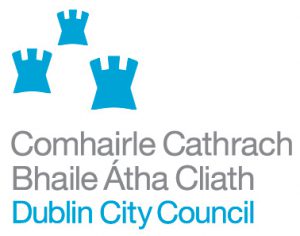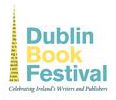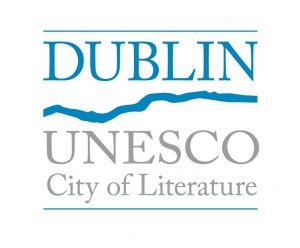24 June, 2015
‘Now God is dead, novelists have acquired a priestly function.’
On Tuesday 23 June 2015, Carlo Gébler launched Here’s Me Here, Further Reflections of a Lapsed Protestant – a collection of writings by Glenn Patterson (published by New Island Books).
Gébler’s musings on the evolution of the writer, the human experience and that much sought after concept, truth, are likely to resound with many writers.


‘We believe in glasnost. Of course we do. We’re in literature, on Grub Street. Glenn Patterson is my friend, my very good friend. Bear that in mind when you listen to what I have to say.
The ecology of literature contains constants that never ever change and yet at the same time, it is always morphing, it always in a state of flux and the flux stuff (the fluxing if that is a word – is it a word? thank you) the fluxing is usually bad, and always awkward.
Writers, novelists, I use the term interchangeably, need to be protean: they need to adapt, endlessly, indefatigably, tirelessly if they are to survive economically. Or, as others, with a more brutal, less lyrical temperament have put it – in the brothel all services must be offered. To survive we must write, because we are obliged so to do, in many registers, in many forms. It was ever thus.
Glenn is primarily a novelist. Additionally, he is writer of drama for the cinema. And the radio. He is a writer of short stories – or as I have sometimes heard him say when he’s heard this said, he is the writer of a short story (which I am sure by the way isn’t true). He is certainly a writer of memoir. And he is a writer, and he has always been a writer, of prose narratives stroke meditations, non-fiction writing which combines the personal lived experience and his thoughts about the society in which he lives, and so on and so forth. His first collection of such pieces was published under the title Lapsed Protestant (an interesting and revelatory title; remember Mr Freud, ‘There are no jokes’) and Here’s Me Here is a further collections of such writings.
When I look at a book it is, now I am entering advanced middle age, impossible not to think about where it is, and where the author is in the continuum, in the history of literature. Writers have always worked in many forms (they had to, to make a living – that was my protean point) but the registers in which they sang have changed and that is instructive. Three hundred, two hundred, a hundred years ago what was usually demanded of writers of fiction when they wrote non-fiction, was – for want of a better word – colour writing or testimony about place, or persons, or topography, rather than opinion, rhetoric or counsel.
But then, sometime in the last century, the precise date is contested but not the fact, God died, or if he didn’t die, he folded his tent and vacated the universe, disgusted by our endless capacity for stupidity and cruelty and his servants on earth lost their way (assuming they ever knew it, which some would dispute), and thereafter, once He went and the religion went AWOL, what was demanded of writers of fiction, when they sang in the non-fiction register, was no longer testimony about place, or persons, or topography, but analysis and insight, counsel and comfort that would fill the vacuum left by the disappearance of religious practice and spiritual content from our wretched lives. This is not an original idea of mine by the way. Oh no. I’ve stolen it, like all my bon mots. It was an American novelist called Bellow, first name Saul, you may have heard of him, he died recently, who first – to my knowledge – fingered this when he observed some time in the 1960s I think, ‘Now God is dead, novelists have acquired a priestly function.’ I quote from memory so I may have it wrong slightly, word wise, but that’s the gist. ‘Now God is dead, novelists have acquired a priestly function.’
And Mr Bellow was absolutely right. Just look around north, south, east, or west, and you will see novelists everywhere, in their droves, stomping around, speaking the truth about the past, the present, the future, the planet, politics, everything, and offering consolation, insight, understanding to us poor mortals abandoned by our maker and his helpmates. It’s a very interesting phenomenon and this book Here’s Me Here is part of that.
So, are the priestly constructs of my lapsed Protestant friend any good? Well, I can tell you this. The writing is sharp, precise, lean, and ludic. It will make you laugh. And I hope nobody will be offended if I go on to make the observation that sharpness, precision, leanness and laughter inducement are not what one traditionally associates with the utterances of most men of the cloth. However, and you knew there was a however coming, I know you did, exceptional literary burnish ain’t enough. You need more. The writing of authors fulfilling a priestly function needs more than style, though style is vital because it gives such pleasure. Writing when it’s in this register, needs to describe experience that is recognisably human and it needs to make sense of that human experience in a way that makes sense to other human beings.
This is very difficult: one, because language is a false friend, and two, because we are saturated and infected by the values of the society in which we exist through its control mechanism, the mass media. In other words, and this is my opinion, it ain’t everyone’s but I’ve got the conch tonight, and I’m not letting go, the sense we make of the madness around us rarely if ever reflects our actual authentic feelings or our deeply held beliefs and usually reflects, though without us being aware that this is the case, an interpretation or an understanding or version that is pre-determined, pre-authored if you like, by the culture in which we nest.
But what you encounter in Here’s Me Here is not that but an intelligence that in every word, sentence, paragraph and page has separated itself from the formulaic, the proscribed, the agreed, the traditional, the standard, and sees life and human experience as it actually is (or tries to any rate). Our political culture – the whole shebang, left to right, Orange to Green, Loyalist to Republican, et cetera, is oppressive, and our collective culture (vaguely socially democratic, light touch capitalist, big on rhetoric, very short on kindness and delinquent on love) is tyrannical, though naturally this is hidden. We need truth tellers who bear witness to this otherwise we ain’t going to survive, and we are most fortunate on this island with its two Irelands (Irelands which are, well, different to say the least) to have a writer who has volunteered for this vital but also thankless task, with Here’s Me Here the proof of that.
Ladies and gentlemen, Mr Glenn Patterson.’
Carlo Gébler
Tuesday 23 June 2015
Irish Writers Centre,
19 Parnell Sq.
Dublin, 1
Ireland

















